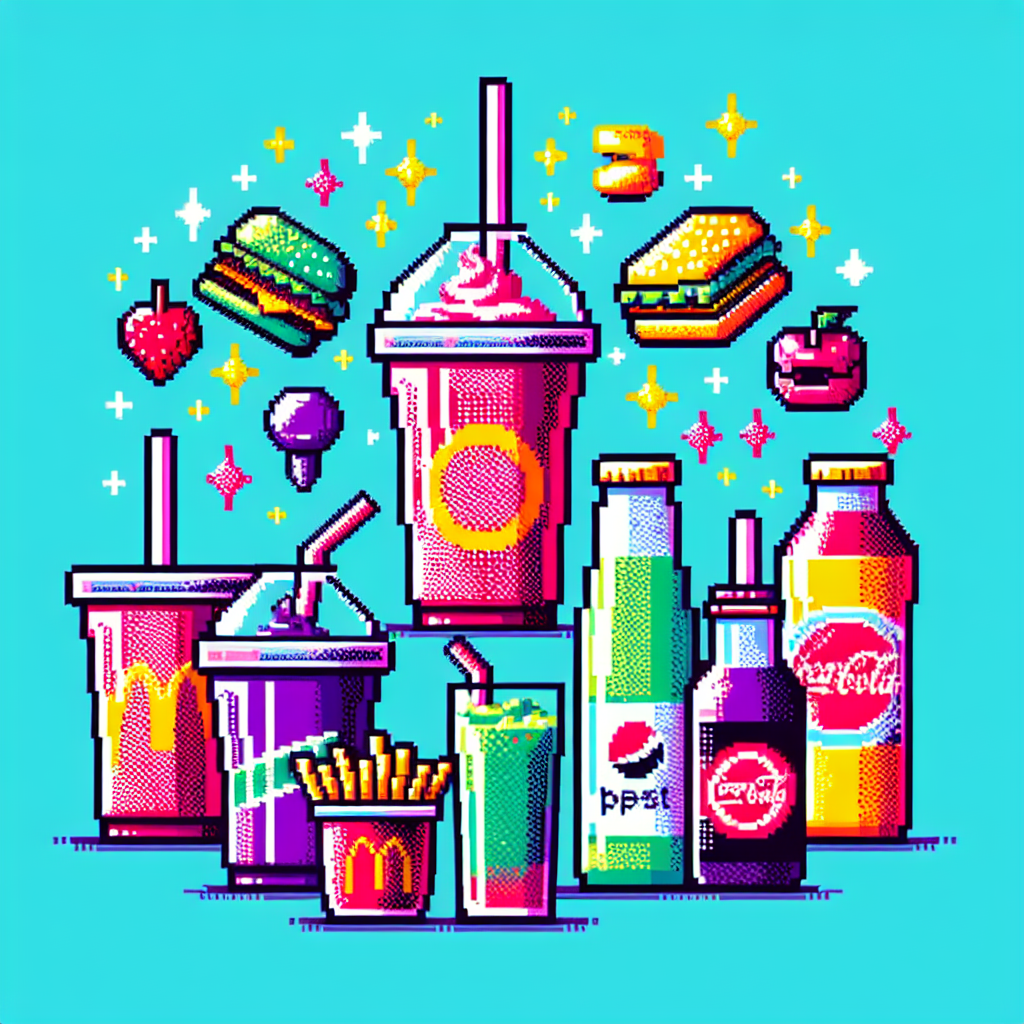Why it suddenly feels like every fast-food restaurant has fun, flavored drinks - CNBC | Analysis by Brian Moineau
Sippin' on Sunshine: Why Fast-Food Restaurants Are Shaking Up Their Drink Menus
If you've swung by your favorite fast-food joint lately, you might have noticed that your drink options have expanded beyond the usual lineup of soda fountains. Wendy's, Taco Bell, and Chick-fil-A, among others, are all diving into the realm of "fun, flavored drinks," shaking up their menus to tantalize our taste buds with something a little more adventurous.
So, what's behind this fizzy revolution? It's not just about quenching thirst—it's about creating an experience. These days, consumers are hungry for more than just a meal; they're looking for a taste adventure. And what better way to elevate a quick bite than with a colorful, Instagram-worthy beverage?
The Beverage Renaissance
It's no secret that the beverage industry is experiencing a renaissance. With health-conscious consumers veering away from sugary sodas, fast-food chains have been inspired to innovate. Starbucks led the charge years ago with their vibrant Frappuccinos and Refreshers, setting a high bar for drink creativity. Now, other chains are catching on, crafting drinks that combine exotic flavors, vivid colors, and a dash of nostalgia.
Take Wendy's for instance, which recently introduced a new line of lemonades, including flavors like Pineapple Mango and Tropical Berry. These drinks don't just quench thirst—they transport you to a sunny beach, even if you're just sitting in traffic on your lunch break. Taco Bell, known for its bold and spicy menu, complements its offerings with drinks like the Mountain Dew Baja Blast, a cult favorite that has almost as much fanfare as their tacos.
Beyond the Soda Fountain
The emphasis on unique beverages also signifies a shift in consumer preferences. Millennials and Gen Z, in particular, are driving demand for more varied and health-conscious options. According to a report by Beverage Digest, there's been a noticeable decline in soda consumption over the past decade, while interest in flavored teas, lemonades, and sparkling waters has surged.
These drinks aren't just a treat—they're a statement. They reflect a move towards personalization and choice, allowing customers to customize their meal experience in a way that's uniquely theirs. It's not just about taste—it's about identity, mood, and even social media presence.
A Global Flavor Trend
Interestingly, this trend isn't confined to the U.S. Globally, there's a growing fascination with fun, unique beverages. In Japan, for example, seasonal and limited-edition drinks are a cultural phenomenon, with brands like Coca-Cola and Starbucks frequently launching region-specific flavors that draw long lines and social media buzz. The explosion of bubble tea shops worldwide also underscores this global thirst for novel drink experiences.
Final Sips
In a world where we're constantly seeking new experiences, it's no wonder that fast-food chains are stepping up their drink game. These fun, flavored concoctions are not just beverages; they're a form of escapism, a momentary vacation from the mundane. Whether you're a fan of a zesty lemonade or a sweet tropical tea, there's something exciting about knowing that your next drink could be a passport to a new flavor destination.
So, next time you find yourself at the drive-thru, consider swapping your usual soda for something a little more adventurous. Who knows? You might just find your new favorite sip. Cheers to the beverage renaissance—may it be bright, bold, and delicious!
Read more about AI in Business

